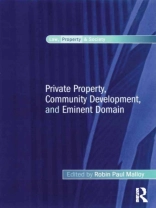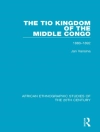The contributors in this volume address the fundamental relationship between the state and its citizens, and among the people themselves. Discussion centers on a recent decision by the United States Supreme Court in the case of Kelo v. City of New London. This case involved the use of eminent domain power to acquire private property for purposes of transferring it by the State to another private party that would make "better" economic use of the land. This type of state action has been identified as an "economic development taking". In the Kelo case, the Court held that the action was legal within provisions of the US Constitution but the opinion was contentious among some of the Justices and has been met with significant negative outcry from the public. The Kelo case and the public debate arising in its aftermath give cause to assess the legal landscape related to the ability of government to fairly balance the tension between private property and the public interest. The tension and the need to successfully strike a balance are not unique to any one country or any one political system. From the United States to the United Kingdom, to the People’s Republic of China, property and its legal regulation are of prime importance to matters of economic development and civic institution building. The Kelo decision, therefore, explores a rich set of legal principles with broad applicability.
Robin Paul Malloy
Private Property, Community Development, and Eminent Domain [PDF ebook]
Private Property, Community Development, and Eminent Domain [PDF ebook]
Compre este e-book e ganhe mais 1 GRÁTIS!
Língua Inglês ● Formato PDF ● Páginas 230 ● ISBN 9781317075677 ● Editor Robin Paul Malloy ● Editora Taylor and Francis ● Publicado 2016 ● Carregável 3 vezes ● Moeda EUR ● ID 5309136 ● Proteção contra cópia Adobe DRM
Requer um leitor de ebook capaz de DRM












